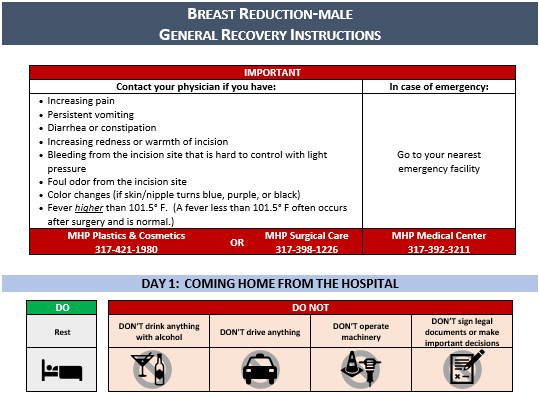
Medications:
- You can take all your medicines that you were taking before your procedure.
- Also take the new medications you were given after your procedure. Be sure to follow the instructions for how to take your medicines. These instructions usually include what time of the day to take your medicines and whether to take them during a meal or on an empty stomach.
- For Pain: It is OK to take Tylenol (acetaminophen) or Advil (Ibuprofen) for mild pain. If this is not enough, you may take your prescribed pain medicine as directed. DO NOT take Tylenol (acetaminophen) at the same time as taking your prescription pain medicine.
- For Constipation: Prescription pain medicines frequently cause constipation. This means it can be hard to use the restroom. You may take over-the-counter stool softeners to help prevent this problem.
- Pradaxa: If you have been prescribed Pradaxa, begin taking the evening of procedure.
Eating and Drinking:
- Resume usual diet as tolerated. Start with liquids first, if you aren’t nauseated, you may advance your diet. No alcoholic beverages today.
What to Expect During this Time:
- It is normal to have a slightly sore throat for a few days following your procedure. This should go away within 24-48 hours. You may use a throat lozenge or cough drop for temporary relief.
- Having surgery may cause temporary body aches, tiredness, nausea, and light-headedness. These should also go away within 24-48 hours after surgery.
- For your procedure, an IV was inserted into your arm or another part of your body. It is normal to see bruising where the IV was placed. If you have swelling or discomfort, a cold compress may be helpful. If you develop redness, warmth, or oozing where the IV was placed, please contact your physician.
- The medicines you received during your procedure may slow your ability to think and react. Do not drive anything, operate machinery, or sign important legal documents today.

What to Expect During this Time:
- Avoid heavy lifting for the next first 4 weeks after surgery and until cleared by Dr. Cristea. Gentle activities around the house are fine, as tolerated. Gentle range of motion of the arms is encouraged. Avoid lifting arms above head for 2 weeks.
- Keep dry gauze in the vest for padding. Keep surgical vest on most of the time, but take off to shower. You may use Ace Bandage instead of vest if desired. Vest should be snug, but not tight. If vest feels too tight, please call Dr. Cristea.
- Showering is ok immediately after surgery and encouraged to keep wounds clean. This should be done with all dressings off (except the donor dressing) and with any drains supported (this is somewhat tricky and may require help from family). After your shower, replace the dressing with dry gauze. Do not apply ointments to wounds.
- You may have a drain in place. Record your drain output twice daily, at the same time each day. This helps Dr. Cristea determine when the drains can be removed.
- If you have a bulb drain, empty drain as shown by nursing staff. If drain output declines, the drain tube may be gently “milked”. Hold onto drain at level of skin, and with other hand and moist gauze or towelette, gently squeeze and slide down the drain.
- If you have a flat, latex drain, no special care is required aside from applying gauze and tape to soak up any seepage.
- Follow up appointment is located in surgery folder.
- Your doctor’s office will also notify you of any test results from your procedure.
- A nurse will call you in the next few days to discuss your recovery and answer any questions you may have. If you have questions before our nurse calls, please contact your physician or call MHP Surgical Care (317-398-1226) to speak with one of our nurses. After hours, you may call the MHP Medical Center (317-392-3211).